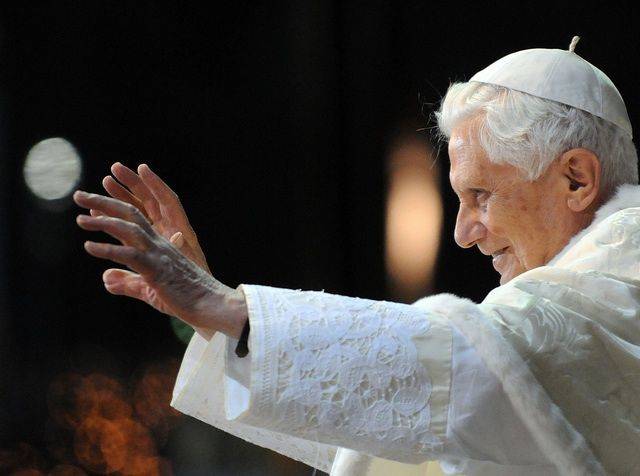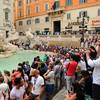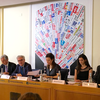Pontiff 's Resignation Stuns the World
ROME
For the first time in history an American cardinal is among those considered to be serious candidates to succeed Pope Benedict XVI, who stunned the Roman Catholic world on Monday by announcing this morning that he will resign at 8 pm on Feb. 28. The ailing pontiff's plans to turn the keys of St. Peter's over to a successor were kept so tightly secret that even Father Federico Lombardi, longtime director of the Press Office of the Holy See, was taken by surprise.
The pontiff's formal statement this morning contained this passage: "In today's world, subject to so many rapid changes, and shaken by questions of deep relevance for the life of faith, in order to steer the boat of Saint Peter and proclaim the Gospel, both strength of mind and body are necessary, strength which in the last few months has deteriorated in me to the extent that I have had to recognise my incapacity to adequately fulfill the ministry entrusted to me."
The Vatican has let it be known that it expects a new pope to be elected within five or six weeks, and perhaps before Easter. Benedict, 85, has presided over the Roman Catholic Church for eight years. It has been whispered for some months now that he may be suffering from Parkinson's disease, but there is no confirmation. In recent months, although his voice has been firm, he has appeared frail, and his dislike of the travel that has become routine for the papacy has not been a secret. His own explanation in a formal statement today was that he is too old to continue.
During the Middle Ages, when different popes vied for the office, other popes resigned. The most noted to resign, however, was the modest and much admired Celestine V in 1294. Indeed, when Benedict XVI toured quake-stricken l'Aquila last year, he made a particular point of visiting the Basilica of Santa Maria di Collemaggio, in which Celestine V is buried, and praying before the tomb. At that time Vatican insiders raised the question of whether this was perhaps an harbinger of things to come, as indeed it has turned out to be.
No sooner was the resignation made known in Rome than speculation began over his possible successor. Unusually, because the U.S.A. has been until now viewed as too much of a super-power, an American cardinal was not considered a serious candidate. However, at an autumn synod, Cardinal Timothy Dolan of New York emerged as a potential candidate. "He was forthright and youthful," said one admiring Vatican insider. "Everyone was favorably impressed." A second North American candidate is Quebec Cardinal Marc Ouellet. Also considered unlikely until now has been an Italian candidate, but as of today Cardinal Angelo Scola, 71, of Milan is in the forefront. Among the electors at the Conclave, one-quarter will be Italians.From Africa comes a fourth possible candidate, Cardinal Peter Turkson, currently president of the Pontifical Council for Justice and Peace. Turkson speaks six languages and understands Latin as well. Already, Irish bookmaker Paddy Power and others are taking bets on who will be his successor. William Hill bookmakers mentioned Cardinal Francis Arinze of Nigeria and placed 8 to 1 odds on Scola.
The pope's formal resignation will begin coincidentally (or not) exactly three days after Italy's important national general elections.
The shy Benedict XVI is popular worldwide, but his papacy has been shadowed by the revelations of pedophile priest scandals which the global Church was reluctant to allow to come to light. Only last week an important report on an Irish Catholic workhouse called the Magdalene Laundries, in which young women were exploited and even brutalized, was made public in Ireland.





































i-Italy
Facebook
Google+
This work may not be reproduced, in whole or in part, without prior written permission.
Questo lavoro non può essere riprodotto, in tutto o in parte, senza permesso scritto.